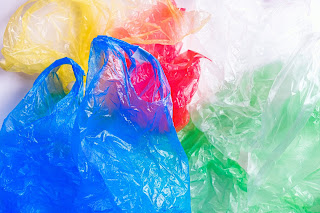My favourite festival Diwali
Introduction
Diwali, the festival of lights is celebrated all over the world with much enthusiasm. This festival is celebrated on the day after Deepavali or “Dhanteras” in North India and in many parts of South Asia and other countries. It is believed that Lord Ram was born on this day as per the Hindu calendar which is why it gets its name as Diwali or “Ram Navami” and it's celebrated by Hindus all over the world. It starts on the new moon day in Kartik (October/November) and ends on the full moon day in Margashirsha (November/December). The word Diwali comes from Sanskrit, meaning "row of lamps".
The festival is also known as the Festival of Lights, but it can be called Ganeshotsav or Laxmi Pujan as well because it's actually an occasion to worship goddess Lakshmi, also known as Parvati or Amba. She is believed to be the wife of Lord Vishnu who came down from heaven with his consort Sita after defeating the demon Ravana. He married her when she was still alive before leaving her body forever so that she would continue protecting him throughout eternity--the same way he protects us today through his worshipers!
History
Diwali is a five-day festival celebrated in India, Nepal, Bangladesh, and some parts of Pakistan. It marks the victory of good over evil. The festival falls on the last day (Diwali) of the Hindu lunar month Kartik (October–November).
Diwali is celebrated differently throughout India depending on which region you are from. In Bengal, it is celebrated as 'Dipawali' or 'Deepavali' while in South India it's known as 'Deepavali'. The festival was originally a harvest festival but has now become more popular than other Indian festivals because it celebrates family reunions and peace between two communities who were once enemies but have now become friends thanks to their celebrations together.
How is Diwali celebrated?
Diwali is a festival celebrated by Hindus, Jains, and Sikhs. This festival is marked on the night of Deepavali or Dussehra (also called Vijayadashami), which falls in autumn or winter depending on the date of your birth. It's a time for family and friends to gather together to celebrate their traditions with an evening feast followed by fireworks.
Diwali celebrations can vary from region to region—in some places, it's celebrated with great pomp while in others it might just be an intimate affair with close friends who've been invited over for dinner at someone's home. But regardless of how you choose to celebrate this holiday, there are certain things that everyone should know about Diwali:
Lakshmi Puja
Lakshmi Puja is a Hindu festival, which falls in the month of October-November. It is also known as Durga Puja or Durga Saptami, and it's celebrated on the 7th day of Navami (Dussehra). Lakshmi Puja celebrates Lord Vishnu’s victory over Bali and his power to bless all beings with peace, prosperity, and happiness. The goddess Lakshmi represents wealth for those who believe in her blessings; hence this festival is considered very important for business people and traders alike!
The main purpose behind celebrating this festival is to pray for a prosperous year ahead so that everyone can enjoy lots of happiness during this time period. During this occasion, people dress up in new clothes and wear jewellery made out of gold or silver coins that represent prosperity because they believe these articles will bring them good luck throughout their lives!
Takeaway:
Diwali is a festival of lights and it is celebrated by Hindus, Sikhs, Jains, and Buddhists. It is a five-day festival that marks the return of Lord Rama to his kingdom Ayodhya after defeating Ravana.
The festival begins with Dhanteras on Dashami (the tenth day) when Lord Rama returned from exile in the forest with Sita and Lakṣmana following him. On this day people perform pooja and lighting diyas at home or outside their homes in groups called mandals (Hindu community). The next day Dhanteras falls on Ekadasi which means auspiciousness or pureness; therefore people worship Lord Mahavir as well as other gods during this period. During this time also festivals like Somvati Amavasya (full moon night), Purnima(full moon day), etc., are celebrated here by all religions together
Conclusion
Diwali is a festival that celebrates the victory of good over evil. It is a celebration of forgiveness and kindness, as well as a time for giving gifts and love to our loved ones. On this day, we are reminded by the gods how important it is to be kind to others so that we can all live together in harmony.
















No comments:
Post a Comment
Please do not enter any spam link in the comment box